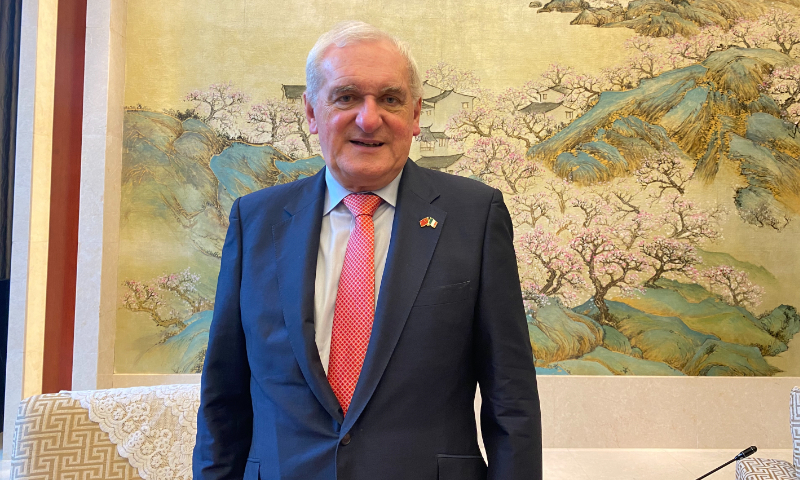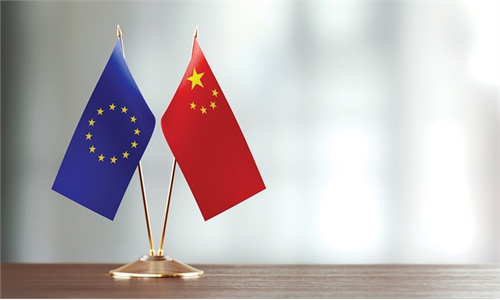Protectionism a fundamental mistake: former Irish PM optimistic about China-EU ties

Former Irish prime minister Bertie Ahern Photo: Zhang Han/GT
Former Irish prime minister Bertie Ahern, referencing Irish history, stressed that protectionism is a fundamental mistake and only openness can bring about development and prosperity. He also expressed optimism for China-EU relationship.
Ahern made remarks in an interview with the Global Times on the sidelines of China-EU Cooperation and Development Forum on Geographical Indications (GIs) held in the East China city of Suzhou on Friday.
Ireland sought independence in the 1920s, and the leaders of that era used to believe that protectionism was the way that could protect Ireland. They believed that "if we protect our products, and have tariffs, this was going to be good for us. It took several decades for the political system and the business system to realize that "this was a fundamental mistake," Ahern said.
It was only when Ireland did away with the tariffs and restrictions and opened up trade, even before joining the European market in 1973, did the country really began to benefit. Ahern mentioned the transition from a state of closeness to some form of openness and the country's accession to the European Union in 1973 and, subsequently, the Single European Act in 1987. "Every time we moved away from restrictions and closing, we developed more."
China-Ireland trade has been consistently growing, not through protectionism or restrictions, but by fostering trade, the former PM said, as "going away from multilateralism will help anybody" is a big mistake.
But the mistake can be repeated, and protectionists will always find a reason or another to impose tariffs and sanctions.
However, those measures work against business, employment, investment and quality life, Ahern noted.
It is also very difficult to keep those measures narrowly defined to certain items, especially when politics gets in the way.
Explaining Ireland's concern over China's subsidies, a hot topic as the EU has launched a probe into it, Ahern said that despite differences with China in some areas, there is a consensus to continue doing business with China.
It is best for people to sit down, navigate through these contentious issues, discuss them, identify areas for compromise, and try to get the greatest amount of issues that can move on, he said.
Compared to two to three decades ago, more European politicians are visiting China, senior officials and top leaders are coming and the European commissioners are far more familiar with how China works.
Though there are administrative and cultural differences, people have to understand each other and you cannot change everybody overnight, said Ahern, remaining optimistic about China-EU relationship.
"There might be tension in some areas, but we should keep on working in a positive way. In spite of politics, the relationship will continue to develop," he said.
"There will always be problems and difficulties, the best way [to respond] is direct engagement."

